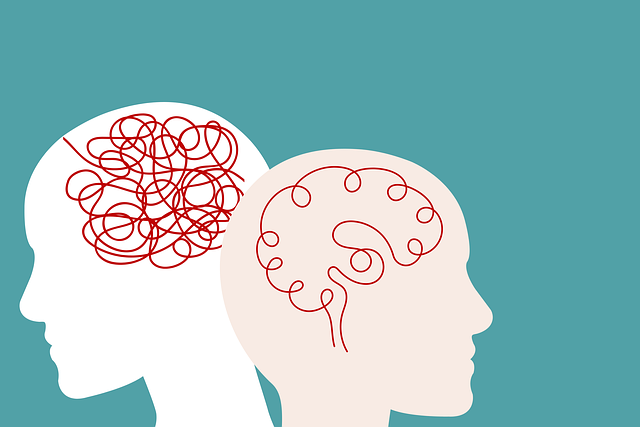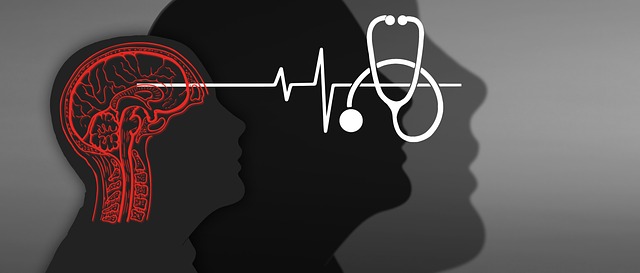In the digital era, advancements in technology have made Superior Gender Identity Therapy more accessible through online platforms and apps, revolutionizing mental health support for transgender individuals. These apps provide personalized tools for self-care, stress reduction, and identity exploration in secure virtual spaces. Key features include guided meditations, affirmations, skill-building exercises, conflict resolution techniques, and mood management tools. Ethical considerations, user privacy, and tailored support are essential for app development, with the market showing a growing demand for home-based therapy. Future trends suggest AI integration, personalized adaptive therapy, and virtual support groups to enhance holistic mental wellness solutions.
In the digital age, mental wellness app development has emerged as a powerful tool for addressing growing mental health concerns, particularly regarding gender identity issues. This article explores the evolving landscape of mental health support through apps, focusing on the significance of accessible and personalized therapy. We delve into key features essential for a superior Gender Identity Therapy (GIT) app, while navigating ethical considerations and user privacy. By examining market trends and engagement strategies, we forecast future directions in this innovative space.
- Understanding Mental Health and Gender Identity Issues in the Digital Age
- The Role of Apps in Providing Accessible and Personalized Therapy
- Key Features for a Superior Gender Identity Therapy App
- Ethical Considerations and Ensuring User Privacy and Safety
- Market Potential, User Engagement, and Future Trends
Understanding Mental Health and Gender Identity Issues in the Digital Age

In the digital age, understanding mental health and gender identity issues has evolved significantly. With advancements in technology, access to resources and support for these topics has become more accessible than ever. However, it’s crucial to recognize that while apps can offer valuable tools for self-care, such as resilience building and stress reduction methods, they should complement rather than replace professional help when needed.
Gender identity therapy, specifically tailored for superior gender identity issues, plays a vital role in fostering inclusivity and mental wellness online. By incorporating mind over matter principles, these digital platforms can empower individuals to navigate their journeys with support, understanding, and confidence. It’s essential to approach these tools with sensitivity and an awareness of the diverse needs within the transgender community, ensuring effective and safe spaces for all users.
The Role of Apps in Providing Accessible and Personalized Therapy

In today’s digital era, mental wellness app development has emerged as a powerful tool to democratize therapy and make it more accessible. These applications offer personalized treatment options tailored to individual needs, breaking down barriers traditionally associated with seeking help. With features like interactive tools, guided meditations, and digital therapy sessions, users can engage in self-care practices at their own pace and convenience. This is particularly beneficial for those who may face challenges in accessing traditional therapy due to geographical constraints, financial limitations, or personal preferences.
One notable area where apps excel is in providing Superior Gender Identity Therapy, addressing a significant aspect of mental illness stigma reduction efforts. By offering safe and confidential virtual spaces, these platforms encourage individuals to explore and understand their identities without judgment. Moreover, they facilitate self-esteem improvement through positive affirmations and skill-building exercises, empowering users to navigate personal conflicts and challenges more effectively. The integration of conflict resolution techniques within these apps equips individuals with valuable tools for managing stress, anxiety, and related mental health concerns.
Key Features for a Superior Gender Identity Therapy App

A superior Gender Identity Therapy app should prioritize features that foster a safe and supportive space for users to explore their identities. Firstly, it must offer personalized journeys tailored to individual needs, allowing users to progress at their own pace. This can be achieved through adaptive algorithms that adjust content based on user feedback and engagement. Secondly, incorporating tools for self-reflection and journaling enables users to track their thoughts and feelings over time, fostering deeper understanding of their identity journey.
Additionally, integrating communication strategies within the app is vital. Features like secure chat functions or online forums can connect users with peers and therapists, encouraging open dialogue and peer support. Mood management tools, such as mindfulness exercises and relaxation techniques, also play a significant role in supporting users’ emotional well-being during their gender identity therapy.
Ethical Considerations and Ensuring User Privacy and Safety

When developing mental wellness apps, ethical considerations and prioritizing user privacy and safety are paramount. Developers must ensure that all data collected from users is secure and used responsibly, adhering to strict confidentiality standards. This includes implementing robust encryption methods to safeguard personal information and gaining explicit consent for data usage.
In the context of Superior Gender Identity Therapy, for instance, apps should provide a safe space for individuals to explore their identities without fear of judgment or discrimination. Developers must also integrate conflict resolution techniques within the app to address potential challenges that users might face while navigating their mental health journeys. Fostering inner strength development through interactive features can significantly enhance user experiences, making these apps invaluable resources in the field of mental wellness, particularly for those seeking tailored support.
Market Potential, User Engagement, and Future Trends

The market for mental wellness apps is experiencing exponential growth as people increasingly seek digital solutions for their psychological well-being. This trend is driven by a growing awareness of mental health issues and the convenience of accessing therapy from the comfort of home. The global mental wellness app market size was valued at USD 4.7 billion in 2021 and is projected to grow at a CAGR of 28% from 2022 to 2030, highlighting a significant opportunity for developers to create innovative tools that cater to diverse user needs.
One area with substantial potential is the development of apps focused on Superior Gender Identity Therapy, which can offer tailored support for individuals navigating gender-related challenges. By prioritizing inclusive design and sensitive content, these apps can foster deep user engagement, encouraging individuals to cultivate inner strength, improve self-esteem, and enhance social skills. Future trends in mental wellness app development may include more personalized experiences, integration of artificial intelligence for adaptive therapy, and a greater emphasis on community building through virtual support groups, all contributing to a holistic approach to mental wellness.
Mental wellness app development, particularly focusing on accessible and personalized therapy for gender identity issues, presents a promising avenue in the digital age. By integrating key features that cater to diverse needs, addressing ethical considerations, and prioritizing user privacy, developers can create a market with immense potential. A superior Gender Identity Therapy app not only enhances engagement but also offers transformative support, reshaping the landscape of mental health care. As technology advances, innovation in this space will be crucial in ensuring every individual receives the necessary tools for their well-being.














